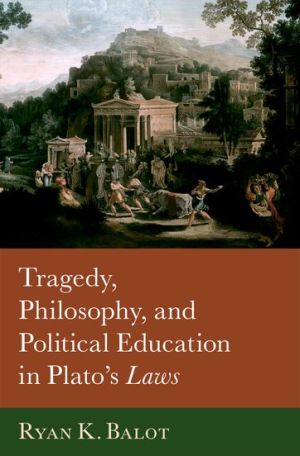
What are the prospects for ambitious political reform in communities of traditional, passionate, and even self-righteous citizens? Can thoughtful legislators create a healthy society for citizens whose judgment is typically unsound? In this searching and provocative book, Ryan K. Balot addresses these timely, yet perennial, political questions by offering a novel interpretation of Plato's last and longest dialogue, the Laws. Turning to the ancient past is often essential to reinvigorating our contemporary understanding of these critical issues.
Previous scholars and writers have either celebrated the idealism in Plato's Laws or denounced its totalitarianism. Balot, by contrast, refuses to interpret the dialogue as a political blueprint, whether admirable or misguided. Instead, he shows that it constitutes Plato's greatest philosophical investigation of political life. In this transformative re-appraisal, Balot reveals that Plato's goal was to cultivate a tragic attitude toward our political passions, commitments, and aspirations. The result is a profound political inquiry with far-reaching consequences.